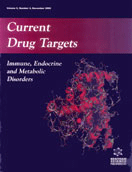Abstract
All major advances in the development of hormonal methods of contraception over the past 40 years have been exclusively female orientated with male hormonal contraception forever "just around the corner". Despite this, the last few years have seen a significant increase in the pace of research and increased involvement from the pharmaceutical industry. This is essential if the progress derived from the public sector is to be translated into a real product for widespread use. Current male methods of contraception, condoms and vasectomy, are relied on by 30% of couples throughout the world but there have been no new male contraceptive methods introduced in the last century. There is currently an increasing emphasis on male involvement in family planning, and evidence both that some men would be keen to shoulder this responsibility and that their partners would trust them to do so. There are several potential novel approaches to male contraception, but the hormonal one is the only one at the stage of clinical research. This method is based on the normal regulation of spermatogenesis by the pituitary gonadotrophins: suppression of gonadotrophin secretion results in a reduction in the rate of spermatogenesis, and azoospermia, the absence of sperm from the ejaculate, can be achieved. Current approaches are now getting close to the ideal of inducing azoospermia in all men. This approach also results in suppression of testicular testosterone production, thus androgen add-back is an essential component of a contraceptive regime. Many different steroids and delivery methods -oral, buccal, transdermal, subcutaneous implants- are under exploration at present, each with their own advantages and drawbacks. The use of synthetic androgens is also starting to be explored: these have the potential advantage of offering tissue-specific actions.
Keywords: male hormonal contraception, testosterone, spermatogenesis, progesterone, contraceptive efficacy, contraceptive acceptability



















